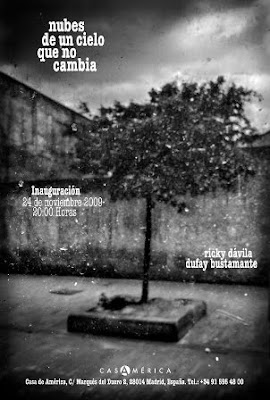
The goal keeper is the oddity in a football team : it’s the only player that during the game can use all of his body, including his hands to play, also he’s the only one that during a game, spends most of his time confined to a delimited zone of the pitch, the penalty area. Like the goal he defends, he is somehow a target himself.
I used to play football all the time and there was always something in the goalie that strike him as a different breed from the rest of us - a different kind not only of player, but also of person. He could be either the craziest on the bunch, or the coolest of us all, the wise man or the joker…no middle ground for this guys.
…..xxx…..
Pain is a big, dark wall that imposes itself between you and the world.
You’re a small vehicle going through a starless night in hostile country. One thing you’re sure of - you got leave there soon.
Looking for comfort, that’s all you can think of.
…..xxx…..
You are alone in the goal area and a big guy is coming fast at you, you’re pretty sure he’s going to strike the ball at you with all his might, somehow you try to get his eyes, you make yourself bigger, you try to look huge, hide the goal from his sight, your body is all he can see, you even use a strident colored sweater as to attract attention…you do your best, but he has the ball and he is free from pressure, he’s an experienced guy, he knows he can beat you…
He’s a young one, he’s quick but he’s overjoyed and he believes in his soul that free from the defenders, he has just to quick hard to get the ball through you…
You get the ball, you saved a certain goal…you don’t get the ball, the guy scored, either way he’s the one making the news later, on account of his skill or his lack of it, you’re just not news.
Well, you can get into the news, if you do manage to get badly injured, for instance having your skull bone kicked in by an over rushed, over roused striker…
…..xxx…..
Some things you can’t share, some things you just can say out loud, you keep them to yourself, bury them inside your heart. You’re one of the guys, you can follow them everywhere you have to go, you even have the guts to lead them - when they’re feeling down, when they’re beat and conceding defeat, you shout at them : “Go on you punks, you motherfuckers, show them you have balls, we can do it…we can do it, just you help me.” and you kick the ball deep into the other team’s defense.
You play along, but there’s this cloud inside you, sometimes you even lose track of the game : “- Jesus, how did they get here so fast ?”.
…..xxx…..
A goalie is ready to die any day, he has to stand still over the goal line and wait for the penalty. He has to let go, take a deep breath go into the net, grab the ball kick it away…the game is not over, it will start again, till you lose the will to play.
…..xxx…..
Robert Enke (24 August 1977 — 10 November 2009 was a German football goalkeeper.
Enke played at leading clubs in several European countries, namely Barcelona, Benfica and Fenerbahçe, but made the majority of his appearances for Bundesliga side Hannover 96 in his homeland.
He won eight full international caps for the German national team between 2007 and his death in 2009, and was part of the squad which finished as runners-up in Euro 2008. At the time of his death, he was widely considered to be a leading contender for the German number one spot at the 2010 World Cup.
On the 10 November 2009, Enke committed suicide by leaping in front of a train.
































